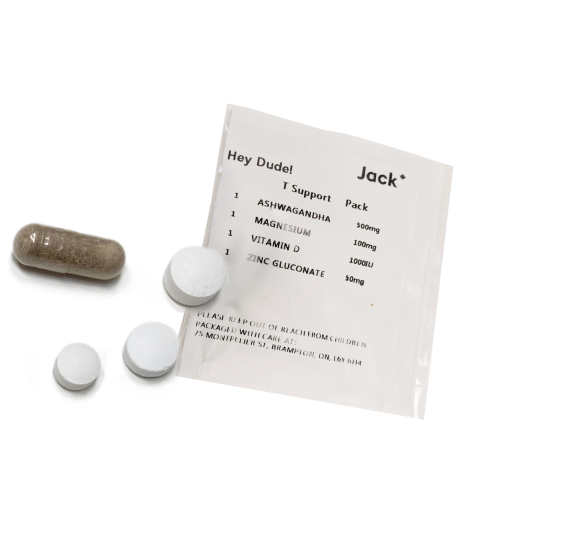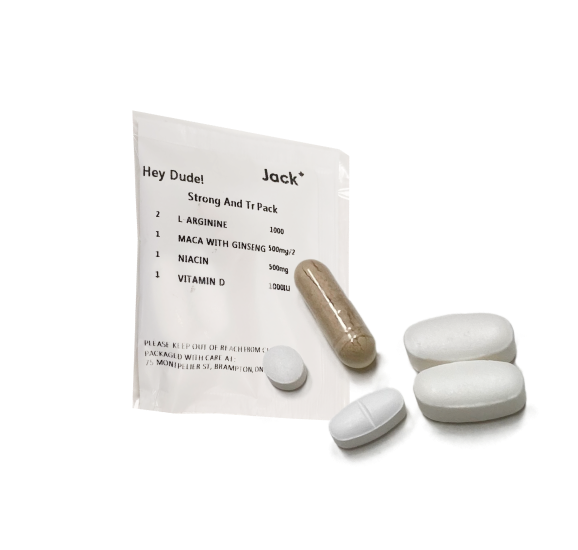By now, we all know that obesity wreaks havoc on your health – your body, brain, and heart. And we’re all aware of the fundamental risks of being overweight. But what may come as a surprise are the underlying conditions that may be deemed as indirect symptoms of excessive weight. Erectile dysfunction is one of them.
So men, if your BMI is over 25, there’s a good chance that your weight may be affecting your erectile function. Let’s talk about it.
What causes erectile dysfunction?
Erectile dysfunction, also known as impotence, is the inability to either maintain or produce an erection that’s adequate enough for sexual intercourse.
Nearly 50% of Canadian men over the age of 40 experience some level of difficulty maintaining erections, with recent studies also suggesting that ED is much more common in young men than previously thought. ED affects men of all ages – and while no statistic may comfort you, it may be helpful to understand the underlying causes.
It’s all about blood flow. With poor blood flow to the penile tissue, it’s challenging for an erection to become firm. So anything that restricts blood flow to the penis is a risk factor for ED: hypertension, vascular disease, diabetes, obesity, stress, anxiety, hormone imbalance, drugs, excessive alcohol consumption, and more.
What’s the connection between weight and ED?
While there’s no scientific evidence to prove that obesity causes ED, several studies have established a clear association between the two. Indirectly, the risk of developing serious conditions due to being overweight is a major contributing risk factor for ED. In fact, obesity may increase the risk of ED by 30-90% in comparison to individuals who are a healthy, average weight.
The conditions associated with obesity, whether that’s heart diseases or diabetes, give rise to symptoms that also host other conditions such as ED. A Harvard study showed that in comparison to a man with a 32-inch waist, one with a 42-inch waist is 50% more likely to have an ED – yes, those are the inches that actually make a difference.
But what’s the link?
–Oxidative damage
Excess fat in the body is known to result in chronic oxidative stress – a condition in which the free radicals and antioxidants of the body are imbalanced. This imbalance not only causes damage to tissues and muscles in the body, including those in the penis, but also could lead to nitric oxide disruption. Nitric oxide is crucial to erections as it’s a chemical messenger that helps relax the penile smooth muscles and expand blood vessels. Therefore the oxidative stress arising from excess fat indirectly explains why obese men are at higher risk of ED.
-Testosterone & hormonal imbalance
As you may know, testosterone is the major sex hormone in males; it motivates sexual performance and libido. While it’s unclear whether testosterone levels in the blood causes ED, science backs that obesity lowers testosterone – the odds of having low testosterone is 2.4 times higher for obese men. A Harvard study shows that an increase of 4 inches in waist size led to a 75% chance of having low testosterone levels. So if you are overweight, you may want to get your testosterone levels checked, because after all, you need appropriate levels of this hormone to achieve erections and maintain a healthy sex drive.
-Cardiovascular conditions
The more weight that an individual carries, the harder the cardiovascular system needs to work to circulate blood, oxygen, and nutrients through the body. With the heart pumping hard and blood flow is consistently high, the chances of developing high blood pressure, also known as hypertension increases. Overweight individuals also likely have elevated cholesterol levels, causing a build-up of plaques in the arteries. A combination of extra stress on the heart and blockage of vessels limits blood flow to the penis and increases the risk of ED.
-Insulin resistance
The accumulation of excessive body fat and fatty acids can lead to the development of insulin resistance – which is characteristic of type II diabetes. Insulin resistance is strongly linked to reduced nitric oxide availability, which causes insufficient blood flow to the penis during an erection. Insulin resistance states impair both nitric oxide production and insulin-induced vasolucation, both of which make an individual more likely to develop ED. For this reason, diabetes is an established risk factor for ED in men and can increase the likelihood of experiencing ED by three-fold.
How does erectile dysfunction affect men's health and well-being?
Erectile dysfunction (ED) greatly affects a man’s health, psychological well-being, and relationships. It’s often indicative of serious health issues like cardiovascular disease and diabetes, undermining sexual satisfaction and overall wellness.
ED causes negative emotions such as low self-esteem and depression, worsening the condition and affecting romantic connections through diminished intimacy and communication.
Many men struggle to discuss ED, exacerbating isolation. These challenges can severely impact life quality, making it crucial to address ED with a comprehensive strategy that includes medical, psychological, and lifestyle interventions.
Such support can help men manage ED effectively, highlighting the need to tackle its extensive implications.
Losing weight = s win/win
While obesity does not cause ED, being obese or overweight is an added risk that almost doubles the likelihood of experiencing it. If you didn’t think of it before, losing weight may be the solution to your problem.
One study that tested the relationship between weight loss and erectile function consisted of a group of men all dealing with ED. Half of the group was the control group and the other half was randomly assigned to an intensive weight loss program. Over the two year period, 30% of the treatment group regained their erectile function with 15% weight loss. Only 5% of the men who didn’t lose weight recovered from their ED. The study also found that eating even 300 fewer calories daily and increasing weekly physical activity added extra benefit to improved sexual function.
Changing your lifestyle and its impact on erectile function
Lifestyle changes can have a profound impact on erectile function, often serving as the first line of defense and treatment for erectile dysfunction (ED).
These changes can improve overall health and can enhance sexual health and function. Here’s an overview of how various lifestyle adjustments can positively affect erectile function:
Diet and Nutrition
A diet rich in fruits, vegetables, whole grains, and lean proteins can improve cardiovascular health, which is crucial for erectile function.
The penile arteries are among the first to be affected by poor dietary choices that lead to heart disease.
Minimizing intake of foods high in saturated fats and sugars can prevent conditions like high cholesterol and diabetes, which are known to contribute to ED.
Physical Activity
Regular physical activity improves blood circulation, boosts testosterone levels, reduces stress, and enhances overall energy levels — all important factors in maintaining healthy erectile function.
Exercise is a key component in managing weight. Since obesity is a significant risk factor for ED, maintaining a healthy weight through regular physical activity is essential.
Alcohol and Substance Use
Excessive alcohol intake can lead to ED. Moderation is key, as alcohol can negatively affect the nervous system and impede the ability to achieve or maintain an erection.
Smoking and the use of illicit drugs have been linked to erectile dysfunction. Both can damage blood vessels, reducing arterial blood flow to the penis.
Sleep Patterns
Quality sleep is crucial for maintaining the hormonal balance that supports a healthy libido and erectile function. Sleep disorders, such as sleep apnea, can directly impact ED.
Stress Management
Chronic stress can lead to changes in hormone levels, blood pressure, and heart rate, impairing erectile function. Techniques such as mindfulness, meditation, and yoga can help manage stress.
Psychological Health
Anxiety, depression, and relationship issues can all contribute to ED. Seeking therapy or counseling can address these underlying psychological factors.
Regular Check-ups
Regular check-ups with a healthcare provider can help detect and manage health conditions like hypertension, diabetes, and cardiovascular diseases, which can affect erectile function.
Implementing these lifestyle changes can significantly improve erectile function and overall well-being. Individuals need to take an integral approach, addressing physical, psychological, and emotional health in tandem to combat erectile dysfunction effectively
Get your mojo back and drop those pounds
So you want to improve your erections? Use this as motivation to drop a few extra pounds and push yourself through your weight loss plateau. Getting in shape will not only help you feel more empowered, confident and live healthier, but could also improve your sex life.
Losing weight may be the answer you’ve been searching for to boost your erections and improve your performance in the bedroom. We realize it’s not as simple as it sounds… but look no further because we have created the last weight loss program you’ll need. Backed by science, this program may be the solution for not only your weight loss, but also ED. So why wait? If you are suffering from both ED and obesity, seek help from our Canadian medical team and begin your personal weight loss journey today.
With a plan of action, you can get your mojo back!
Key Takeaways
- Being overweight significantly increases the risk of erectile dysfunction (ED) due to associated health issues like heart disease and diabetes, which impact erectile function.
- Improving diet, increasing physical activity, managing stress, getting quality sleep, and reducing alcohol and substance use are crucial for enhancing erectile function.
- Studies show men undergoing weight loss programs experience notable improvements in erectile function, highlighting weight management as an effective ED treatment strategy.
Frequently Asked Questions
How quickly can weight loss impact erectile dysfunction?
Weight loss can impact erectile dysfunction within a few months, depending on the individual’s health status and the extent of weight loss.
Is it possible to completely reverse erectile dysfunction by losing weight?
While losing weight can significantly improve erectile dysfunction, complete reversal depends on the underlying causes and their severity.
Does obesity affect libido as well as erectile function?
Yes, obesity can affect both libido and erectile function, due to hormonal imbalances and psychological factors.














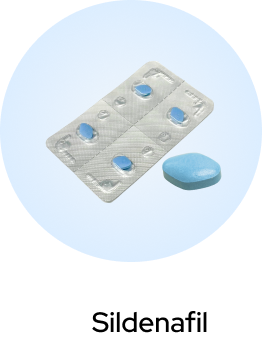
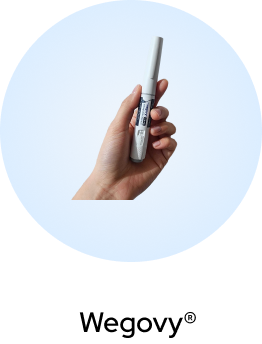
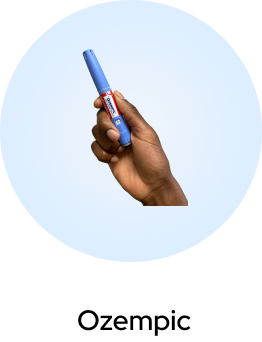


 (US)
(US)
